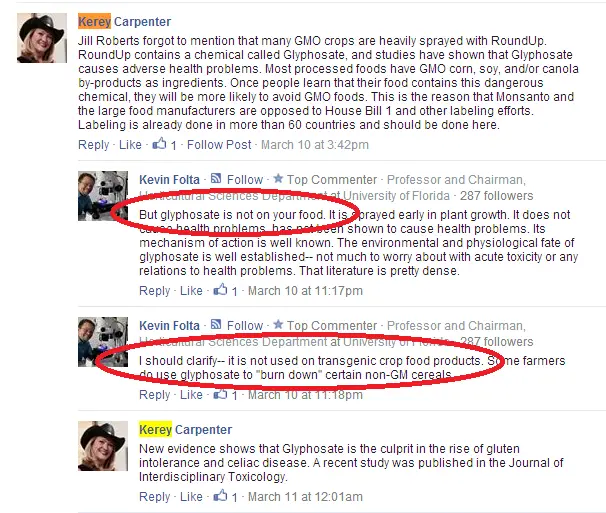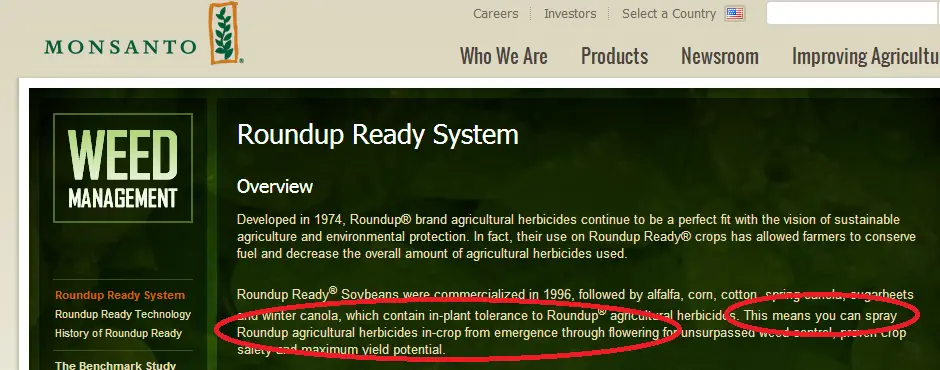A lack of public and consumer confidence is putting the brakes on potential new GMO crops in Florida, according to a recent article from the Gainesville Sun‘s website.
As noted in the article, rising public opposition to new GMO crops is having a detrimental effect on possible progress in the Biotech field, as well as a lack of financial backing and overall interest due to the risks involved with a public that is far more informed about GMOs and far less accepting of them than it used to be.
Growers and industry reps are saying they don’t want to invest in the millions of dollars it takes to bring a new GMO crop to market that may not be accepting of them, the article notes.
Varieties being developed include GMO strawberries, papayas and tomatoes designed to be disease-resistant, but they may not see the light of day due to public pressure.
Among those interviewed in the article include Kevin Folta, professor and chairman of the University of Florida’s Horticultural Sciences Department, who accuses anti-GMO protesters of being people who “aren’t interested in hearing about science,” a common line pro-GMO executives, PR reps, and those who have vested interests in them can often be heard repeating.
Supporters of the GMO-Free movement cite the many independent studies showing potential harm from genetically modified foods, however, including a study by Prof. Gilles-Eric Séralini of France showing tumors in lab animals fed GMOs for longer than the standard 90-day feeding period, that was recently published in the Environmental Sciences Europe peer-reviewed journal.
The Sun’s article seems heavily slanted in favor of GMOs, as it does not include interviews with any organizations representing concerned citizens, and features the heavily biased line “someday when the (GMO) technology is widely accepted…”
Pro-GMO Researcher: Don’t Worry, “Glyphosate Is Not Used on Transgenic Crop Food Products”
One of the lead voices in the Sun‘s article, Prof. Folta, has been debating members of the GMO-Free movement in the comments sections of articles, and one particular comment is giving some activists and researchers pause.
“(Glyphosate) is not used on transgenic crop products,” Folta says in response to a commenter who expresses concern about glyphosate spraying on crops (see below).
Folta’s comments are in direct opposition to what Monsanto says on their website about the Roundup Ready System in which crops are genetically engineered to be sprayed with the flagship herbicide, however, as shown below.
The article on the Sun‘s website notes that GMO soy and corn are (virtually) not present among farmers in Florida; however, Folta was addressing a specific comment about the food supply in general in the above case. It is estimated that up to 80 percent of all packaged foods in the U.S. contain Roundup Ready GMOs.
Regardless of how much and when farmers spray, however, there is clear evidence that Roundup is making it through and reaching the insides of our food, and bodies, in potentially dangerous amounts.
A study from the group Moms Across America for example found levels of Roundup in mothers’ breast milk that were 760 to 1,600 times higher than the European Drink Water Directive allows for with individual pesticides.
And there are several examples of GMO foods that have been shown to contain high levels of glyphosate, including Roundup Ready soybeans. As noted in this study published in the peer-reviewed Food Chemistry, these types of soybeans contain high levels of Roundup and the pesticide Aminomethylphosphonic acid.
The EPA has recently even raised the acceptable levels of glyphosate residues allowed in food.
Unless Folta was referring to glyphosate being sprayed on finished food products that include GMO soy or similar Roundup Ready GMO crops (which would be logically absurd, of course), it appears as though his comments are incorrect in this case.
Florida Situation Just One Byproduct of Growing GMO Free Movement
While it can often be hard to tell what the exact effects of grassroots activism are, the Florida story is just another example of how the GMO Free movement across the United States is helping to slow down or halt the adoption of this “technology” that Americans never asked for, and instead had foisted upon them without their knowledge or consent.
More and more people are buying organic specifically to avoid genetically modified crops, a recent survey noted.
The study of 1,200 households with at least one child under 18 conducted by the Organic Trade Association found that more people than ever are buying organic in order to avoid GMOs.
A total of almost 25 percent of parents buying organic stated that avoiding genetically modified foods is now one of their top reasons for choosing organic food, the most in the four years the study has been taken; it’s also up significantly from the 16 percent from the same survey in 2013.
While it can often be hard to discern what the effects of grassroots activism are, small victories like these multiplied over time can have a dramatic effect, and help to ensure that we have the right to truly natural, healthy food for the foreseeable future.
Related: Scientific Study Shows the ‘GMO Tipping Point’ May Be Closer Than We Think
P.S. Thanks for reading! You can stay updated by subscribing to our email list, by clicking here.
Thanks for installing the Bottom of every post plugin by Corey Salzano. Contact me if you need custom WordPress plugins or website design.






